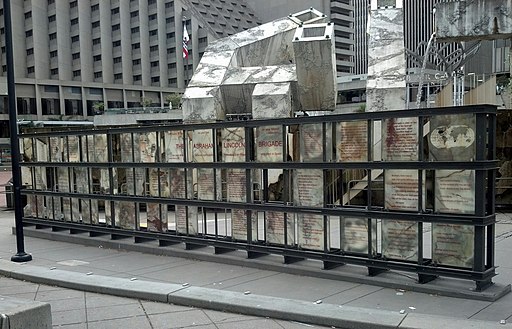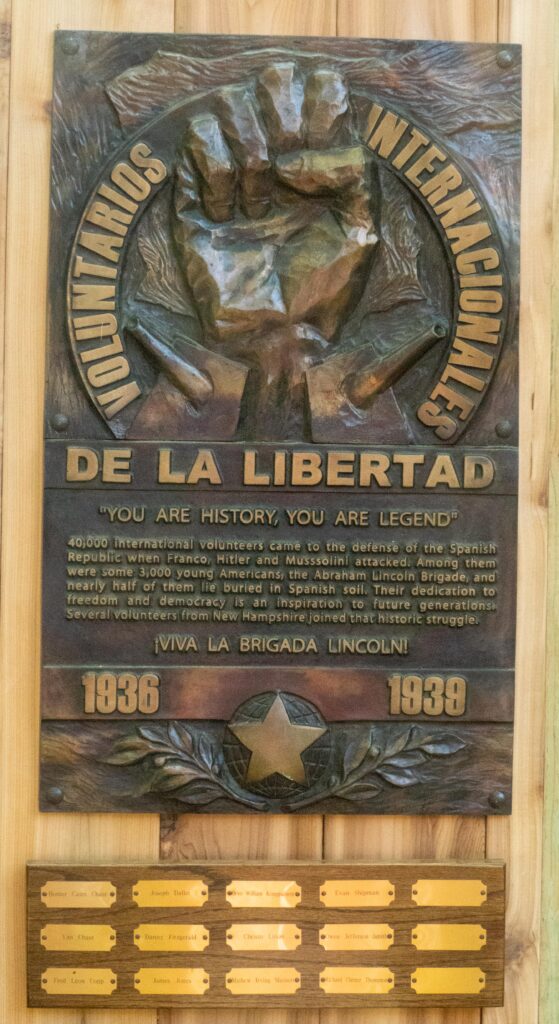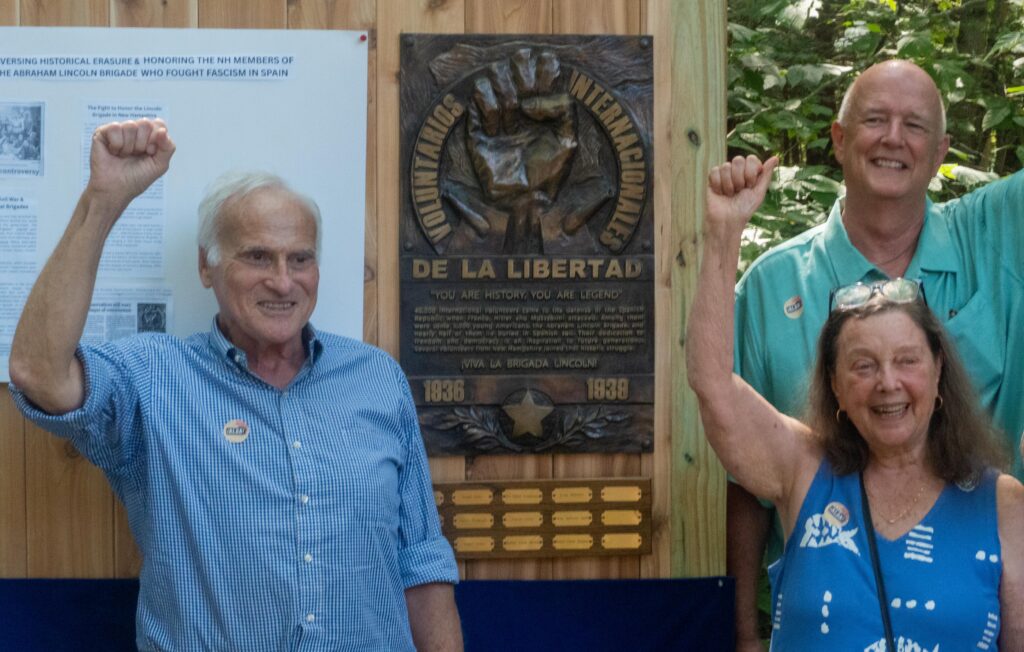
The Abraham Lincoln Brigade’s NH Members
When fascists backed by Germany and Italy attacked the government of Spain in 1936, leftists around the world recruited volunteers to defend the government. The formation of “International Brigades,” aligned with communist parties, drew especially from French leftists and also included exiled communists from Germany and Italy. According to a Wikipedia article, “Many Jews were part of the brigades, being particularly numerous within the volunteers coming from the United States, Poland, France, England and Argentina.”
(The government of the Spanish Republic, which included leftist parties, called itself “Republican.” Supporters were often called “Loyalists.” The fascists called themselves “Nationalists.”)
Fascism still had influential sympathizers in the United States, and the U.S. government stayed neutral throughout the Spanish Civil War. But some 3000 Americans signed up with “The Abraham Lincoln Brigade,” one of dozens of non-Spanish battalions that fought for the Spanish Republic against the fascists .In the United States, which ultimately joined the European war against fascism, the men and women who served with the Lincoln Brigade were later labeled “premature anti-fascists.”
15,000 international volunteers lost their lives fighting the Spanish fascists, who emerged victorious in 1939. Spain was ruled by fascist General Francisco Franco until his death.
In 2000, 2 ½ decades after Franco’s demise and ten years after the collapse of Soviet communism, New Hampshire State Senator Burt Cohen decided it was time for the New Hampshire veterans of the Abraham Lincoln Brigade to get public honor. The Hall of Flags at the State House, which had been designated as the place to honor the state’s veterans, seemed like the right place for a commemorative plaque. Cohen brought his proposal to the Joint Committee on Legislative Facilities, a generally obscure group of Representatives and Senators charged with managing the physical aspects of the State House and Legislative Office Building.

“I told them about the Spanish Civil War and how Hitler and Mussolini backed one side. And I told them that while America, still skittish from the horror of the Great War, officially stayed neutral, about 2,800 brave Americans, men and women, black and white, fought for the good guys,” Cohen later wrote. The committee asked him to get an estimate.
To his surprise, when Cohen returned with a $1500 quote from a Seattle sculptor who had made similar plaques in other states, the committee told him to go ahead.
But when the plaque arrived, Cohen says, “we were frankly a bit taken aback by the look of the plaque—a large, raised fist dominated the piece. The raised fist was not, strictly speaking, the symbol of the Lincolns or the Internationals. But it’s what I had so I went with it. Had the plaque simply shown the three-pointed star of the International Brigades, it would possibly be hanging in the State House today. Possibly. But that’s not what happened.”
What happened was a typical New Hampshire furor, stoked by right-wing politicians and the editors of the state’s dominant newspaper, the Manchester Union Leader. When Senator Cohen unveiled the plaque on Lincoln’s Birthday, 2001, it stayed up for about an hour before it was removed and placed in a vault in Room 103 of the State House.
The following week, the legislature’s Joint Facilities Committee held two days of hearings about the plaque flack. Supporters testified about the Lincoln Brigade’s historical significance and the importance of its role in ringing alarm bells about the danger of European fascism. Opponents denounced Cohen, the plaque, the Lincoln Brigade, and anything else associated with communism. One State Representative was quoted saying, “Cohen and his plaque should be flown over Russia and dropped from 20,000 feet without a parachute.”
The plaque was never again placed on public display at the State House. From 2001 to 2025, it remained in the vault, but in 2025 it was declared “surplus property” and put up for sale. After its purchase by a State Senator, ownership was transferred to the World Fellowship Center, where it was re-dedicated on July 13, 2025. Those present at the dedication ceremony included the son of a Lincoln Brigade member, the executive director of the Abraham Lincoln Brigade Archives, and Burt Cohen.

Cohen has identified 13 men from New Hampshire who served with the Lincoln Brigade. They are: Homer Chase, Van Chase, Fred Leon Copp, Joseph Dalles, Danny Fitzgerald, James Jones, Orvo William Kemppainem, Christo Litsas, Matthew Irving Matison, Evan Shipman, Owen Jefferson Smith, and Richard Chester Thompson. In addition, Joseph Dallet, who graduated from Dartmouth in 1927, went to Spain a decade later and was killed in action. Abe Osheroff, who also served with the Lincolns and later made a film about the Spanish Civil War, lived in Hanover for several years in the 1980s.
Read more about the plaque re-dedication.

